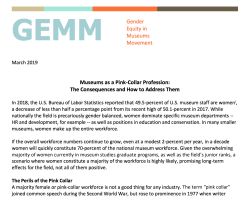Starting With Thank You
Posted: November 28, 2016 Filed under: Leading Across Organizations, Museum, museum staff, Nonprofit Leadership, Organizational Values, Work Habits | Tags: Leadership, museums, Nonprofit Leadership, soft skills, workplace culture Leave a comment
It seems fitting that a few days after Thanksgiving 2016, we should say thank you. So to all of you from 129 countries, who are responsible for Leadership Matters’ almost 85,000 views, we’re grateful, humbled, and inspired. It’s been an awe-inspiring ride, and we wouldn’t be here without you.
But if you’re a leader, you understand that thank you’s shouldn’t be reserved for once or twice a year. Good leaders, whether in a museum, heritage organization or other non-profit know the power of an authentic thank you. Here’s a story: As many of you know I am a curator serving in a large organization whose primary focus is education. As a former boy’s school, there is a long shadow of testosterone that imbues our organizational DNA. A while ago a male colleague approached me. He has distinctive handwriting and he wanted me to write handwritten thank you notes for him addressed to some of our administrative staff. Why? He felt they were rarely thanked, and he wanted the praise to stay with them, not bounce back to him. I wrote about 20 notes. Each was accompanied by a fresh flower. Did we unlock the key to American education that week? No. Was there a lot of smiling in the hallway? Yes. That was a thank you that took planning. Most don’t. They are genuine often spontaneous compliments for jobs well done.
You know that old phrase “You attract more flies with honey than vinegar”? Well, it’s true. Gratitude is a trait, an emotion and a mood. Genuine gratitude is a response for good work, for a strong team, for an innovative program or exhibit or out-of-the box thinking. So, as we do for so many topics, here are some thoughts about gratitude for individuals, leaders and organizations.
Individuals
- When something goes well, when it’s a pleasure working with your team or department members, thank them. Gratitude doesn’t just come from the director; you can thank your colleagues as well.
- When someone compliments you, own it. And say thank you.
- Make a thank you matter. Don’t diminish its meaning through overuse.
Leaders
- Understand what your staff is doing so you can thank them appropriately, and so you know the difference between a daily job done well and a challenge met with new and inventive thinking.
- Be clear about whether you’re thanking an individual, a group or both, and don’t hesitate to call out an individual’s or a team’s exemplary service.
- Remember that 4 out of 5 employees say they would stay in a job longer if their boss showed appreciation for their work. This is not the moment to play Scrooge. Check out this link for more details on how employees feel about being appreciated: Glassdoor Survey.
- Be equitable in your thank yous. Don’t favor one demographic–new employees vs. experienced, young vs. old–over another.
- Be creative in how you thank folks. Can you offer an exemplary employee a chance at a juicy, creative project or a new parent the chance to telecommute?
- Respect your staff. Your behavior is an ongoing thank you.
Organizations
- Appreciation–the act of saying thank you is a great motivator. Museums and heritage organizations thank donors all the time. Don’t forget to thank staff as well.
- As with leaders, thank you’s come in many forms. Raises are the most obvious and reflect gratitude for dedication and achievement at work. If that’s not possible, how about career development opportunities, time off or an unexpected gift? (My colleague’s notes and flowers, for example.)
- And speaking of time off, if you can’t close the museum or heritage site, can you offer half the staff four or eight hours off while the other half covers, and then reverse the procedure? Everyone gets paid time off and it may prove eye-0pening to experience the museum while covering someone else’s job.
- Make sure your board (or the the board’s compensation committee) understands what your museum staff values when it comes to employee appreciation and what they don’t, and make sure the leadership and staff are comfortable communicating that information.
So for those of you on a break from work this long weekend, we hope it was a happy one. Write and let us know how you say thank you as employees, leaders or as an organization.
Joan Baldwin









